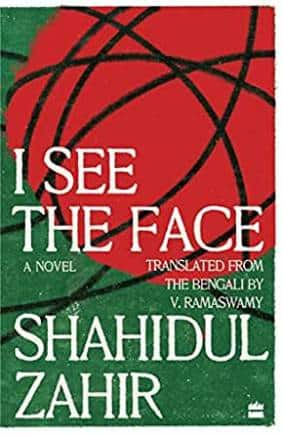



I had never heard of the Bangladeshi novelist Shahidul Zahir until last year, so when I thought of reviewing his novel, I See the Face, which has been freshly translated into English by V. Ramaswamy, I dived into Life And Political Reality first to get a sense of Zahir’s literary world. I picked up the novella the way one would walk into a cave, with apprehension and curiosity, and put it down after two-and-a-half hours with the feeling of having achieved something in life.
Why did it take me so long to learn about Zahir? I’m ashamed to admit that I haven’t been doing my job of keeping an eye on innovative authors well. Life And Political Reality (translated by Ramaswamy and Shahroza Nahrin) is violent; still, it is narrated in a tone that matches a vivid dream because all you get is a single paragraph that tirelessly runs for about 80 pages. On the surface level, it’s quite breathtaking. And if you go a little deeper, you’ll find out that the technique it follows (that is: stream of consciousness) isn’t merely a façade; it is, in fact, used to capture the trauma of a country that is at war.
 I See The Face, by Shahidul Zahir (author), V. Ramaswamy (translator); Harper Perennial India; PP 256; Rs359
I See The Face, by Shahidul Zahir (author), V. Ramaswamy (translator); Harper Perennial India; PP 256; Rs359Okay, I’ll get back to I See the Face since that’s what this review is mainly about. But I won’t be able to stop myself from bringing up other works and monkeys. Oh, yes, monkeys are some of the most important supporting characters in this novel, as they are the protagonist Chan Miya’s best friends. They show up at his house once when he’s still a baby and keep coming back in order to play with him. Perhaps, it isn’t wrong to say that they even have a hand in raising him.
The monkeys that accompany Miya wherever he goes are also fond of creating problems for his enemies. If they smell any air of animosity around him, they will immediately come up with unique ideas to injure the rivals of their human friend. But Miya, who’s considered to be a smart child, abandons education after a point and turns into a car thief. However, I See the Face isn’t just about him – or his journey – alone.
Many other significant events occur between the two poles of Miya’s schooling and thieving, and it becomes nearly impossible to not take stock of the situation every now and then, as the novel jumps from one character to another, one timeline to another, and one anecdote to another. Just when you think Zahir is finally focusing on the background details related to Miya, he’ll introduce another character and change the wheels of the story altogether.
Take the subplot, for instance, in which “local goons of East Nakhalpara” attack a Christian, named Joseph, in what is a clear case of hate crime. The hate doesn’t end there, though. When Joseph’s mother packs him off to England with the hope of keeping him safe, hate follows him because of the colour of his skin. What do you think happens then? “Some miscreants” stab him. Joseph couldn’t live peacefully in his own country due to his religion, and, as a brown man, he couldn’t survive at all in a foreign nation. Hate, after all, is contagious.
Even though there are killings and the Bangladesh Liberation War at the heart of I See the Face and Life And Political Reality, it’s the psychological framework of men that Zahir seems to be most interested in. In the novella Abu Ibrahim’s Death, the eponymous protagonist flirts with the idea of having an extramarital affair, but ultimately decides to drop his plan when the day arrives. Nevertheless, when he later comes to know that the woman he had become besotted with also had no intention of forging a relationship with him under the covers, he becomes “dejected.” Was his ego deflated? Ouch.
Zahir approaches even minor characters with an astounding amount of enthusiasm, and that’s pretty evident in his stories. And since he relies on a large group of people who are more often than not related to one another, it affords him the opportunity to use his characters as if they were pins on a map.
One of the main jobs of a translator probably has to be to retain the essence of the original language. Although I didn’t grow up around Bengali, I believe that Ramaswamy and Nahrin have taken me closer to the mystique surrounding Zahir. I’m glad to report that I’ll be devoting more time from now onwards to the whimsical pleasure of getting my hands on translated literature from around the world.
Discover the latest Business News, Sensex, and Nifty updates. Obtain Personal Finance insights, tax queries, and expert opinions on Moneycontrol or download the Moneycontrol App to stay updated!
Find the best of Al News in one place, specially curated for you every weekend.
Stay on top of the latest tech trends and biggest startup news.